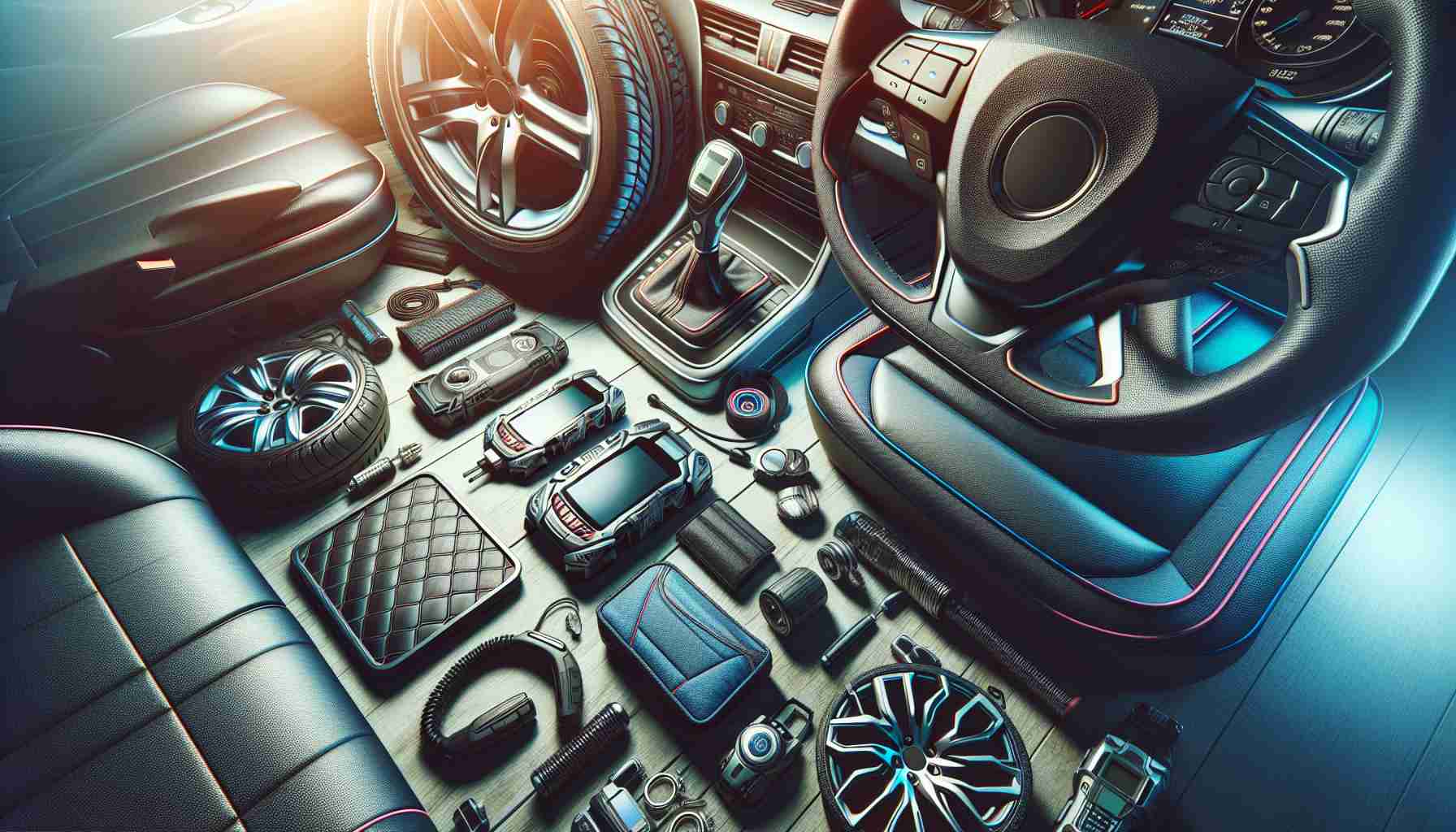The Role of Cargo Screens in SUVs
Many SUV owners have questioned the practicality of the small mesh screens designed to cover their cargo areas. These accessories often receive varying opinions, with some doubting their usefulness. However, recent insights shed light on their significance in everyday use.
These mesh screens are designed to serve a crucial function: they provide an extra layer of security for belongings stored in the trunk. When transporting items, especially valuables, having a cargo screen can prevent prying eyes from seeing inside an SUV, thereby reducing the risk of theft.
Another aspect of using these screens is related to safety. With pets, groceries, or other loose items in the back, a mesh screen can act as a barrier, ensuring that these items remain in place during sudden stops or sharp turns. This can significantly enhance safety for both passengers and drivers.
Moreover, there’s a convenience factor at play. These installations are often easy to use, allowing owners to quickly cover their cargo when needed without hassle. Even if some skeptical consumers consider them unnecessary, the practical benefits of cargo screens in SUVs cannot be overlooked.
In conclusion, while their use may not be universally acknowledged, cargo screens definitely play a role in enhancing security and safety within SUVs. So next time you see one, remember its value in protecting your belongings.
The Unsung Heroes of Cargo Security: Why SUV Cargo Screens Matter
The Role of Cargo Screens in SUVs
In the realm of SUVs, cargo screens often remain an overlooked yet significant feature that contributes to both security and safety while driving. Many SUV owners may question their necessity, but cargo screens serve essential functions that go beyond mere aesthetics.
Key Features of Cargo Screens
1. Enhanced Security: Cargo screens are primarily designed to conceal belongings stored in the trunk, which is especially important when transporting valuable items. This added layer of privacy discourages theft by keeping the contents of the vehicle out of sight. Studies indicate that vehicles with cargo covers or screens are less likely to be targeted by thieves.
2. Safety Mechanism: In addition to security, these screens serve a practical purpose in maintaining safety during transit. Loose items—such as groceries, sports equipment, or even pets—can become dangerous projectiles in the event of a sudden stop. A cargo screen acts as a physical barrier that helps secure these items, reducing the risk of injury to passengers.
3. Convenience: Most cargo screens are designed with ease of use in mind. They can be quickly deployed or retracted, making it simple for owners to manage their cargo space. This convenience is particularly beneficial for those who frequently switch between hauling large items and everyday driving.
Pros and Cons of Cargo Screens
Pros:
– Improved security and privacy for belongings.
– Enhanced safety by restraining loose items.
– Quick and easy installation, with no need for complicated tools.
Cons:
– Potential blocking of visibility from rearview mirrors, depending on the design.
– Some users may find them inconvenient if removing the cover is required frequently.
– Limited space coverage in smaller SUVs.
Use Cases for Cargo Screens
– Family Trips: Parents can secure items, ensuring that toys, bags, and snacks are contained, thus improving travel safety.
– Pet Transportation: Owners transporting pets may utilize cargo screens to create a confined, safe area in the back of the SUV.
– Sports Gear and Equipment: Athletes can secure their gear during commutes, preventing them from shifting during drive time.
Trends and Innovations
Innovations in cargo screen design have introduced retractable and adjustable models that cater to various SUV sizes, ensuring compatibility across different makes and models. Some modern designs even incorporate smart materials that can automatically adjust to the height of the cargo area, providing flexibility and enhanced usability.
Market Analysis
The market for SUV cargo screens is growing, reflecting a rising emphasis on vehicle safety and security. As consumers become increasingly aware of vehicle theft and interior safety, the demand for functional and effective accessories like cargo screens is expected to rise. This trend offers manufacturers an opportunity to innovate and expand their product lines to meet consumer needs.
Security Considerations
When installing a cargo screen, it’s important to ensure that it fits properly and does not obstruct rear visibility excessively. Regular checks should be made to confirm that the screen is secure and functioning correctly to effectively serve its purpose.
Pricing Insights
Cargo screens for SUVs typically range in price depending on the make, model, and material. Basic models can be found for around $50, while more specialized, durable options can cost upwards of $200. Consumers should evaluate their needs and budget when selecting a cargo screen.
Conclusion
Cargo screens may seem like a minor accessory in the grand scheme of vehicle functionality, but their benefits are significant. From enhancing security and safety to offering convenience, they are indeed valuable additions to any SUV. So for SUV owners contemplating their utility, consider the role these screens can play in optimizing your vehicle’s capability.
For more information, visit Auto Accessories Garage.
